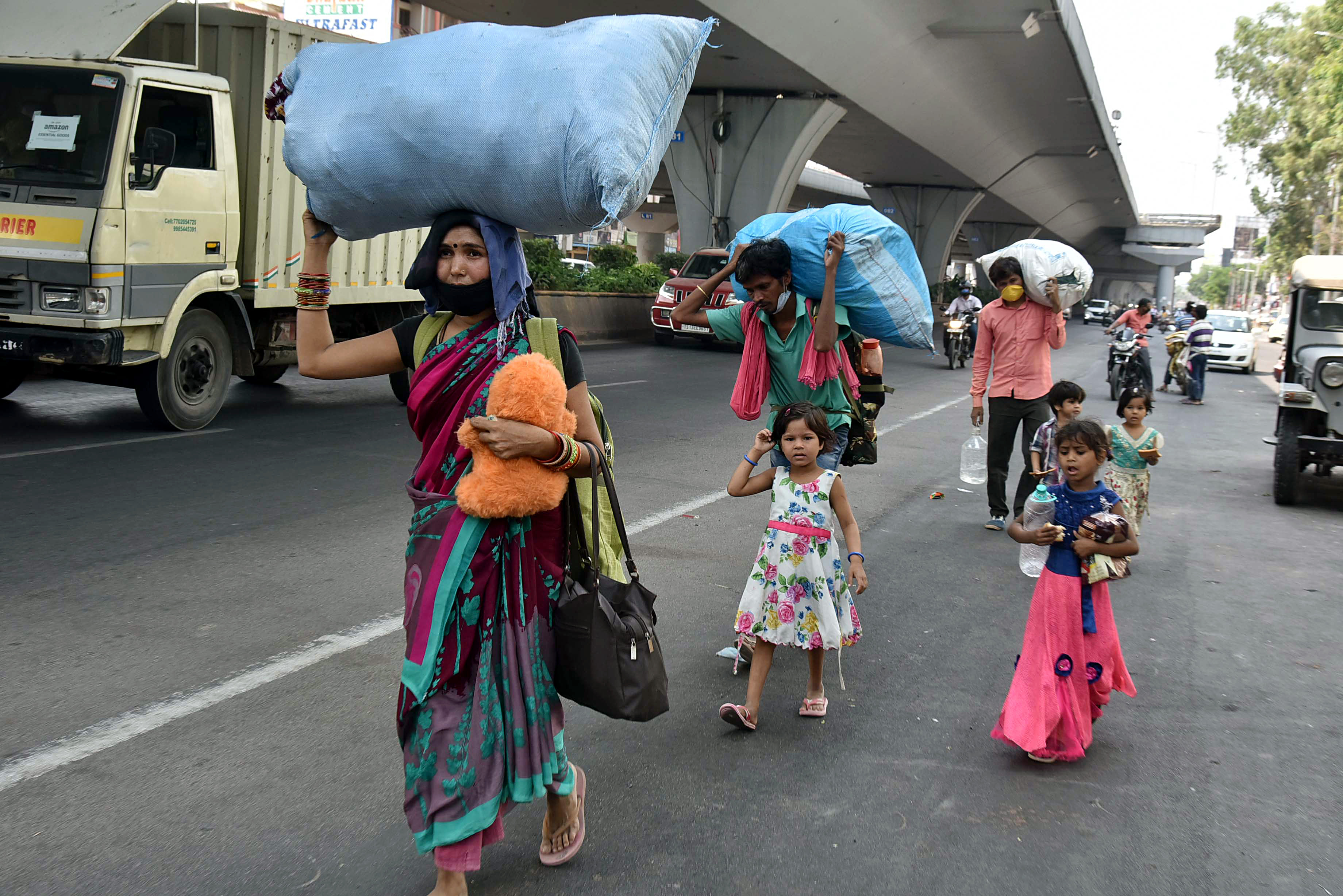This is as per indications reaching officials of the labour department in Hyderabad.
Hyderabad: Most of the migrant labourers who left for their homes in the north and eastern India in the last two months may not return to the south, especially Telangana and Andhra Pradesh anytime before Dasara, around October end this year, according to indications reaching the officials of the labour department in Hyderabad.
Around eight lakh workers have returned to their native states—Uttar Pradesh, Bihar, Jharkhand, Bengal, Orissa and Chhattisgarh—crippling key sectors like infrastructure, irrigation, bricks and cement, food processing and hotel industries in both the Telugu speaking states. The migrants account for about 70% of the total semi-skilled workforce of these states. Telangana Chief Secretary Somesh Kumaar himself is talking to his counterparts in the home states of the migrant workers to persuade them to return to complete unfinished projects in Hyderabad and adjoining areas.
The officials of the northern and eastern states are talking to their labour groups, but their response is far from encouraging, sources in the labour department told this newspaper.
Now, many private firms are offering double the wages, perks like free accommodation and health insurance packages and free transportation, but the migrant workers are not lured by them. More than anything, they are concerned about their safety in view of the growing number of Covid cases in Hyderabad and other major cities. Moreover, the migrant workers had many bad experiences in Hyderabad.
At many places, the house owners had evicted them as they couldn’t pay up rents in April and May. The workers had to spend some days in open areas like bus shelters and footpaths as they waited for police clearance to catch trains arranged from mid-April. They had to depend on cooked food and dry ration offered by the donors in the city.
In some cases like a leading private infrastructure firm at Kandi in Sangareddy district, near Hyderabad, the migrant workers were not paid their wages since March first week to keep them on the premises.
This has angered the workers who burnt a police vehicle and in turn were lathi-charged. Only after the officials intervened, the workers were paid their money.
The government is ready to allow many sectors like shops and establishments, malls and entertainment parks, but the owners have no manpower to open up. According to a report by the Telangana State Chamber of Commerce and Industry, about 60% of workers have left for their native villages and there are no workers to run the businesses.
For instance, this year’s agriculture season has witnessed a bumper paddy production, but the rice mills and other food processing industries have no workers to buy and store the same.
The workers of food processing industries are semi-skilled or skilled, who are mostly from Bihar or Jharkhand. Around 1,200 rice mills have been affected by the labour shortage.
Trade and industry bodies like the Greater Hyderabad Hotel Owners Association have approached the labour department seeking its help to get back the migrant workers.
“We are trying our best to find enough labour force to keep the businesses running, but the migrants are unlikely to return anytime soon, may be before Dasara, in October,” said Telangana Labour Minister C. Malla Reddy.
If the guesstimate of the minister is right, the manufacturing industry and commercial sectors are unlikely to get back to their pre-lockdown days. Construction projects like irrigation canals and some flyovers and highways, too, might be delayed due to labour shortage, thus escalating the costs. The transport sector, too, is crippled by the shortage of workers as most of them are holed up in their villages.
There is labour within these states, too, but most of them are depending on drawing wages from local agricultural operations as this year’s south-west monsoon appears to be normal. The hiked wages under MNREGA (Mahatma Gandhi national rural employment guarantee scheme) from Rs 140 to Rs 220 per day, too, is a reason for local workers’ reluctance to return to cities.
“The same can be attributed to the migrant workers of Bihar, UP and other states where MNREGA workers have gone up, thanks to stepped up allocations by the Centre. We have to wait for another two months, when the agriculture season ends and migrant workers feel safe to return to southern states,” said a senior official in the Telangana labour department.

